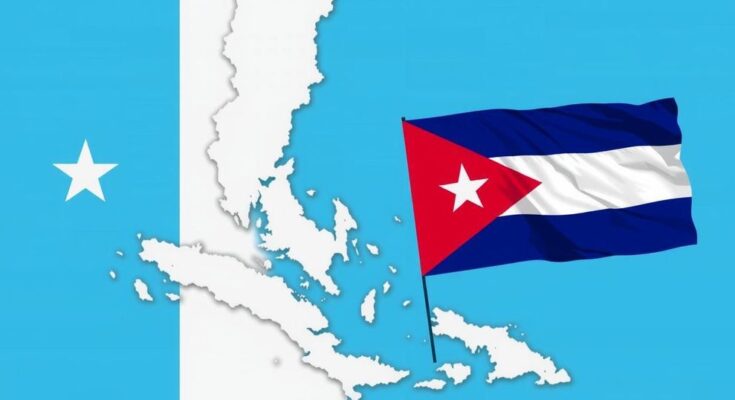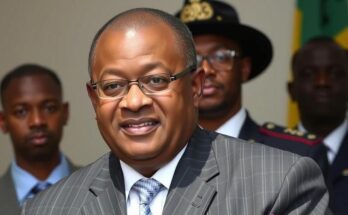President Javier Milei has dismissed Foreign Minister Diana Mondino after Argentina voted in support of lifting the Cuban trade embargo, marking a significant shift in foreign policy towards a pro-U.S. alignment. He plans to audit the Foreign Ministry personnel to root out those he perceives as promoting agendas contrary to freedom, reinforcing a break from Argentina’s historical support for leftist causes.
President Javier Milei of Argentina announced significant changes within the Foreign Ministry following the country’s recent vote at the United Nations regarding the Cuban trade embargo. Milei dismissed Foreign Minister Diana Mondino after she voted against the embargo, aligning Argentina with 186 other nations that supported the lifting of the embargo imposed on Cuba since 1962. This decisive action underscores Milei’s intent to purge diplomatic officials who he perceives promote “agendas that are enemies of freedom.” He has appointed Gerardo Werthein, the former ambassador to the United States, as Mondino’s successor. In conjunction with these changes, the Milei administration declared an impending audit of all Foreign Ministry personnel to identify individuals advocating for positions that do not align with the government’s vision of supporting human rights and opposing dictatorial regimes. This move reflects Milei’s orientation towards closer ties with the United States and Israel, breaking away from Argentina’s historical support for leftist ideologies and aligning more strategically with Western interests. In a notable departure from the previous administration’s approach, Milei’s government publicly stated its opposition to the Cuban government, condemning human rights violations. The country’s recent UN voting pattern indicates a shift in foreign policy, as Argentina was one of just five nations—along with the United States and Israel—to vote against a UN resolution favoring Palestinian membership in May. Further upheaval in diplomatic ranks occurred when Milei replaced the ambassador to the UN shortly before Mondino’s dismissal. Milei’s government has made it clear that diplomatic staff must conform to the administration’s foreign policy. Presidential spokesperson Manuel Adorni provided an ultimatum for those dissatisfied with the new direction, encouraging them to either embrace the president’s agenda or resign. This directive has created apprehension among diplomatic personnel, indicative of Milei’s authoritative and singular approach to governance and foreign relations.
The recent actions by President Javier Milei come against the backdrop of Argentina’s historical diplomatic stance, which has typically favored solidarity with leftist regimes and opposition to U.S. policies. Under previous administrations, Argentina voted against the Cuban embargo, positioning itself as a champion of certain leftist causes on the international stage. However, Milei’s administration is pivoting toward a more pro-Western foreign policy, distancing itself from past alliances in favor of relationships with the United States and Israel. This shift is marked by significant personnel changes within the Foreign Ministry and a clear condemnation of regimes that violate human rights, aiming to redefine Argentina’s role in international affairs.
In conclusion, President Javier Milei’s aggressive restructuring of Argentina’s Foreign Ministry reflects a marked departure from the country’s traditional diplomatic positions. With the dismissal of Foreign Minister Diana Mondino and the promise to audit ministry personnel, Milei is emphasizing loyalty to a foreign policy aligned with U.S. interests and prioritizing human rights advocacy over previously established leftist alliances. This directive not only illustrates Milei’s commitment to reshaping Argentina’s foreign relations but also signals a potential shift in regional diplomatic dynamics as Argentina redefines its global stance.
Original Source: www.batimes.com.ar




